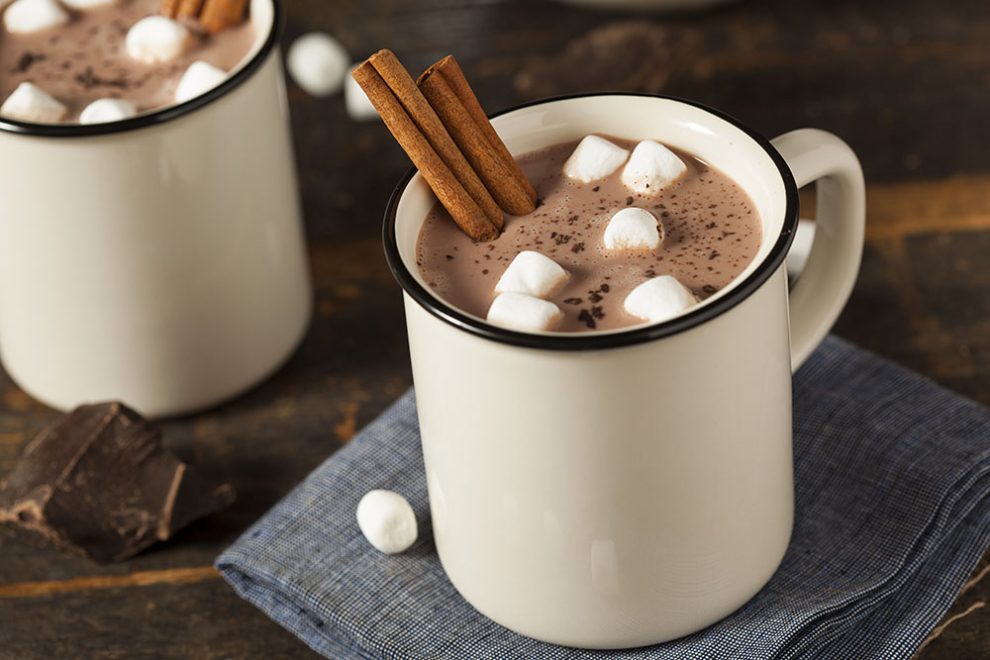A new study, published in the high profile journal Hypertension, has given a tantalising hint into how cocoa, found in drinks like hot chocolate, may protect against cognitive decline, writes Dr Tim Crowe.
As we age, the body does not perform as well as it did in our youth. Declining brain function, which is termed cognitive impairment, is probably the most concerning health problem facing an ageing population. Having regular ‘senior moments’ of forgetfulness is the first stage of mild cognitive impairment which if it progresses, can lead to dementia.
A person with mild cognitive impairment might have difficulty following a conversation, have regular occasions of not being able to recall the names of new acquaintances or might frequently lose things such as their car keys. Any therapy that was effective in treating mild cognitive impairment would be prized as it would help cut the risk of developing more serious conditions such as Alzheimer’s disease.
Specific dietary components are one area of fruitful research being explored in treating cognitive decline. Omega-3 fatty acids found in fish oil, B group vitamins, and vitamins D and E have all been linked to improving brain function through their anti-inflammatory action or brain neurotransmitter regulation. One new area of research is looking at a group of dietary compounds called flavanols which are abundant in tea, grapes, apples and cocoa products including chocolate.
The chocolate industry with their deep pockets is understandably interested in funding research that looks at any positive health aspect of cocoa and flavanol consumption. Cue the previously unexplored research question of if dietary flavanols could improve the mental workings of people with mild cognitive impairment.
Randomly assigned to consume one of three different cocoa beverages containing either low, medium or high amounts of flavanols, 90 people with mild cognitive impairment took part in the 8 week study. A battery of four different validated and robust measures of mental performance were undertaken over the study. Three of the cognitive tests showed a statistically significant improvement in mental performance with higher amounts of flavanols consumed and the fourth test was heading in the right direction.
Validating the known metabolic actions of flavanols, improvements were seen in insulin resistance, blood pressure, and lipid oxidation in people in the high and medium flavanol consumption groups. All three of these metabolic factors are linked to the risk of dementia.
What it all means
Boosting flavanol consumption could be a tasty and effective way in managing cognitive decline with age. While we wait for larger types of studies carried out for longer periods of time to be published, enjoying a cup of hot chocolate and other rich flavanol-containing foods may make the waiting worthwhile.
About Dr Tim Crowe
Dr Tim Crowe is a career research scientist and educator with most of this spent in the absolutely fascinating, yet always controversial, area of nutrition. He is a credentialed Advanced Accredited Practising Dietitian with the Dietitians Association of Australia.
This article was originally published on Thinking Nutrition and is republished here under Creative Commons.





















Add Comment